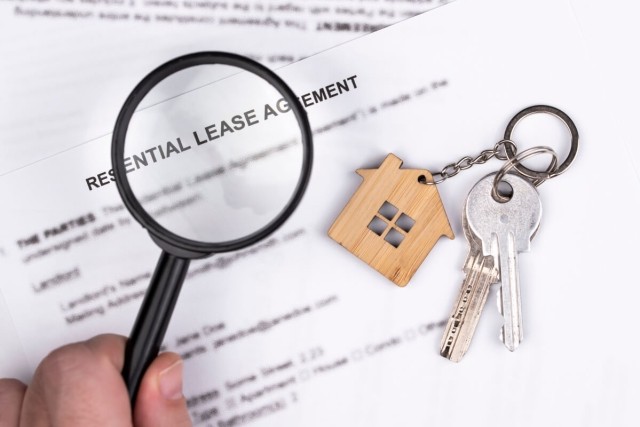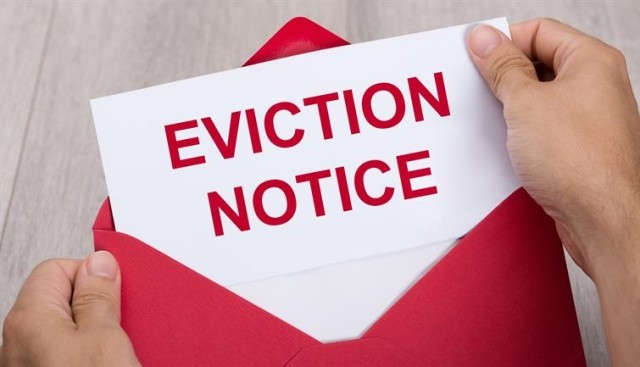You’re coming to the end of your lease terms and your landlord has reached out about renewing or maybe even extending your lease. Hopefully they have given you plenty of time to make your decision, but either way, what’s the difference between a lease renewal and a lease extension? A lease renewal means your landlord is letting you stay on the property but needs you to sign a new lease agreement for another term that’s usually the same amount of time as your initial lease. A lease extension means you would stay on your current lease, but the lease term would be extended, typically by a few months. A lease renewal is typically offered at the end of a lease if the landlord has enjoyed your tenancy and wants you to stay, while a lease extension may occur if you’ve asked your landlord for more time to find a new rental, or the landlord can’t guarantee the property for a full lease term.
Everything to Know About Lease Renewals
A lease renewal is when your landlord asks you to sign a new lease to remain in your rental for another lease term after your current lease is up. In most cases, not much will change during a lease renewal, but there are a few things to watch out for if you’re renewing your lease.
Can I negotiate my lease renewal terms?
This is one of the most important questions renters have when it comes time to renew. Now is the time to talk with your landlord about changes in lease terms, including rent and the length of the lease term. If you’ve been a good tenant who always pays rent on time, you will have a little more bargaining power when it comes to talking through your new lease. It’s in your landlord’s best interest to minimize tenant turnover, so don’t be afraid to talk to them about the lease terms.
Should I renew my lease?
The question of whether you should renew your lease or not depends on your plans for the future and your experience with your unit and landlord. If you have plans to move to a new city or start a family and your current rental won’t suit some additional family members, it may be best to not renew and find a new apartment or house. If your landlord consistently dropped the ball on repairs and maintenance, you might want to forego the stress and find a better situation. The snap decision to not renew a lease can be stressful, especially if you’re having a hard time finding a new rental. This is when a lease extension can come in handy.
What to know about lease renewals
Again, a lease renewal is a brand-new lease. This is the most common time a landlord will increase rent, since you’re agreeing to another lease term that’s typically 12 months. This is also one of the few times you can negotiate your lease agreement. Your landlord should send a lease renewal letter 90 days before your current lease is up. This is a common timeframe for notice, but make sure to check your state and local laws so you know your landlord gave you enough time to make a decision.
Everything to Know About Lease Extensions
Lease extensions can be great for both parties. For you, the tenant, a lease extension gives you a little extra time to find a new rental once the extension is up without having signed a full new lease term. For the landlord, they can reduce vacancy and keep a solid tenant while hopefully making the eventual move-out process a little less hectic.
How is a lease extension different from a renewal?
A lease extension is a signed agreement that extends the terms of your current lease, whereas a lease renewal enters you into a new agreement with potentially new terms. A lease extension is not a month-to-month lease, which is what happens when your lease ends but you remain in the unit and your landlord continues to accept rent. Lease extensions are formal and should come with a signed agreement.
Why would a landlord extend a lease rather than renew?
There are many situations in which a landlord would offer a lease extension rather than a renewal. The landlord may have plans to sell or heavily renovate the property and can’t offer a full lease term but doesn’t want to have a vacancy for an extended period of time. A lease extension may also be a landlord’s way of letting you to stay in a unit without raising rent or going through the hassle of creatinga new lease.
Will my rent increase with a lease extension?
Since a lease extension simply extends the term of a lease and doesn’t add any new provisions, it’s uncommon for rent to increase during an extended lease term. However, unless you live in a rent-controlled building or there is discrete language in your lease that forbids a rent increase outside of a renewal, your landlord is within their rights to raise rent if they give you the proper notice as required by local laws.
Deciding to Extend or Renew?
Coming to the end of a lease can be stressful. Should you renew at your current rental or search the internet for your next dream apartment? Whichever you choose, just know there are pros and cons to each. Renewing your lease means you enter in an entirely new lease with a new lease term, one that will most likely come with a rent increase. A lease extension can buy you some time and alleviate the stress of the move, but since it’s just an extension, you won’t have the security a new long-term lease. Make sure to talk it over with your landlord and see what lease amendments they would be willing to negotiate or how long your lease extension would be for. Happy renting!






